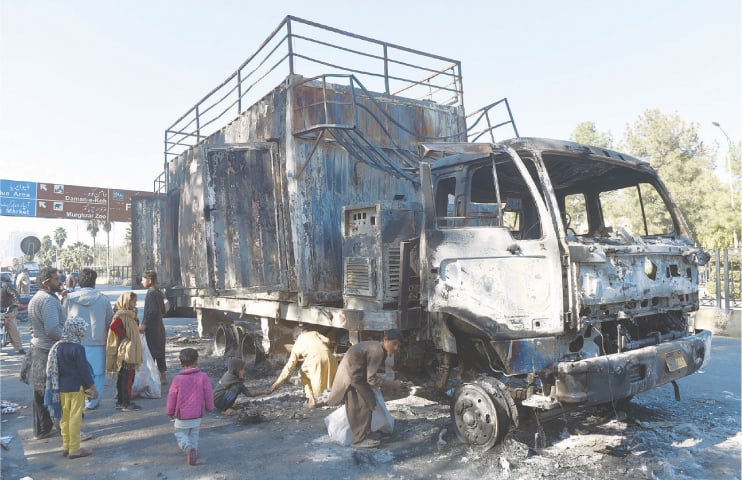The Islamabad protest orchestrated by Pakistan Tehreek-e-Insaf (PTI) will be remembered as a grim episode in the country’s socio-political history. What began as a political gathering descended into violence, lawlessness, and accusations that exposed the murky depths of PTI’s strategies. The chilling allegations surrounding this day raise troubling questions about the party’s leadership, their choices, and their influence on the socio-political fabric of Pakistan.
Murad Saeed: A Fugitive Pulling the Strings?
At the center of the unrest is Murad Saeed, a fugitive and a key figure linked to the May 9 riots. Allegedly hiding inside Ali Amin Gandapur’s container, Saeed is accused of leading a group of nearly 1,500 armed individuals, including illegal Afghan nationals. These armed men were reportedly divided into four highly organized units, each tasked with a calculated assault on law enforcement officials.
The emergence of such paramilitary-style tactics underlines the broader question of how political protests in Pakistan have devolved into platforms for orchestrated violence. Saeed’s involvement not only reflects PTI’s alleged reliance on coercive measures but also hints at deeper societal issues, including the unchecked movement of armed groups.
Gandapur’s Arsenal: A Show of Power or Anarchy?
Ali Amin Gandapur’s role in the chaos is equally contentious. Reports allege that Gandapur brought a private militia of 20-25 armed guards to the protest. As they exited D-Chowk, these guards opened indiscriminate fire, a move that was later weaponized on social media to falsely accuse law enforcement agencies. This calculated misrepresentation reflects the use of misinformation as a tool to manipulate public sentiment.
The tensions within PTI’s protest groups became evident as Gandapur’s faction clashed with Murad Saeed’s armed contingent. The ensuing arguments and gunfire epitomized the descent of a political rally into sheer anarchy, signaling the erosion of discipline within PTI’s ranks.
Illegal Afghan Nationals: A Hidden Threat Unleashed
The alleged presence of illegal Afghan nationals at the protest points to a disturbing intersection of politics and unchecked migration. These individuals, reportedly armed with weapons, tear gas, and slingshots, targeted security forces with alarming precision. Their involvement underscores how PTI’s actions may have emboldened non-state actors to participate in domestic political conflicts.
As night fell, the situation deteriorated further. A violent altercation between Afghan groups and Gandapur’s faction led to intense firing and the eventual burning of Gandapur’s container. This moment symbolized the breakdown of any semblance of leadership or control, highlighting the dangerous unpredictability of such politically charged events.
A Society Held Hostage: Violence and Looting in the Aftermath
As PTI’s leadership fled the scene, the protest devolved into chaos. Allegations of looting and robbery emerged, with protesters reportedly targeting vehicles and civilians alike. The social fabric of the protest, initially claimed to be peaceful, unraveled as participants turned on each other and on the public.
Perhaps the most shocking aspect of the day was a vehicle allegedly mowing down Punjab Rangers personnel, an act backed by irrefutable evidence. This incident not only reflects the disregard for human life but also raises questions about the broader implications of political protests turning into violent spectacles in a society already struggling with law and order issues.
Misplaced Loyalties: State Resources and Political Agendas
The allegations against Gandapur’s contingent extend to the misuse of state resources, with questions arising over whether provincial government assets were covertly employed. This reflects a dangerous trend in Pakistan’s political culture, where party agendas often blur the lines between public service and private interests.
The absence of evidence linking state officials to these actions does not absolve PTI of its responsibility. Instead, it highlights a systemic issue: the exploitation of power and influence to serve political ends, eroding trust in institutions and worsening Pakistan’s socio-political instability.


